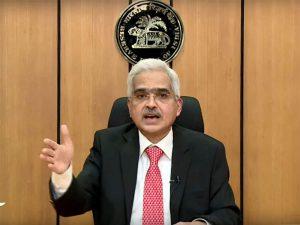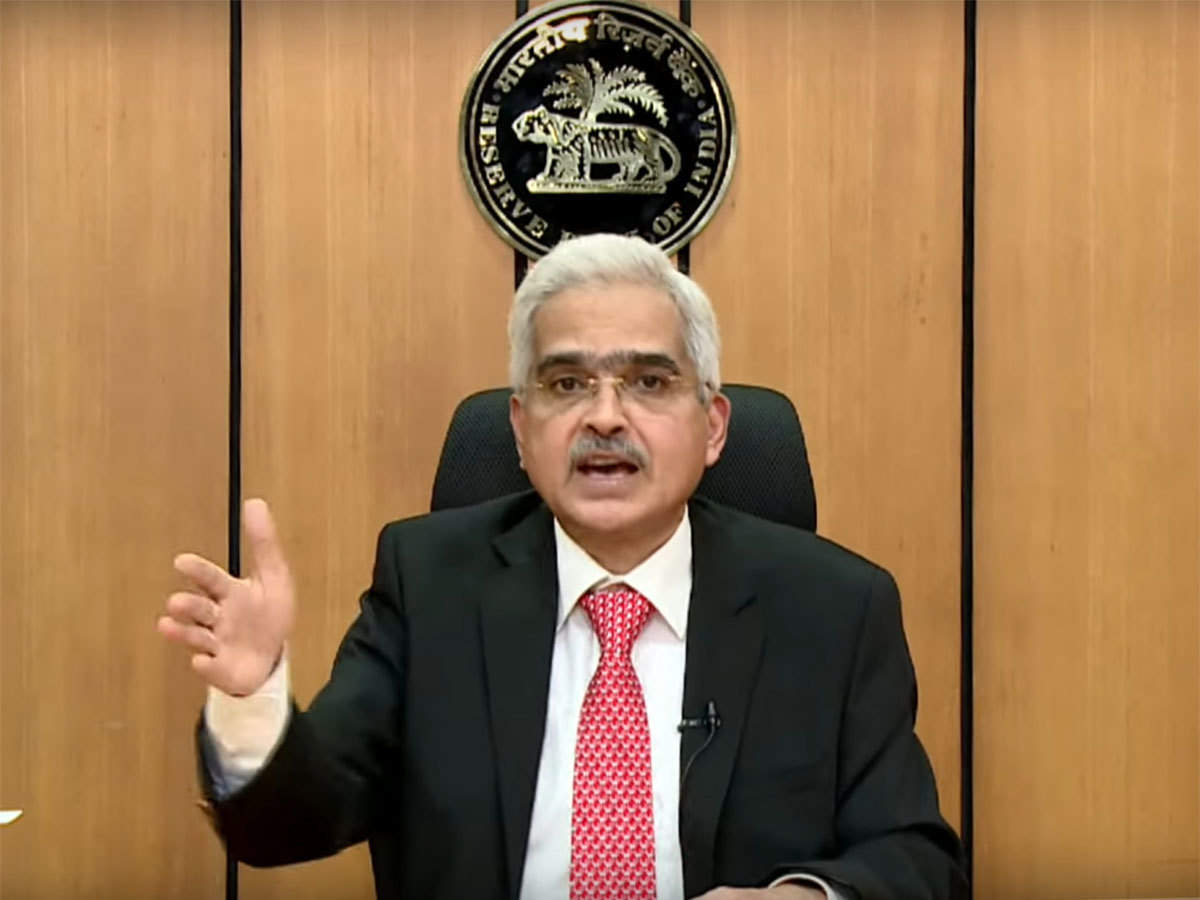
The six-member monetary policy committee of the Reserve Bank of India (RBI) headed by Governor Shaktikanta Das, has decided to keep key lending rates unchanged for the fifth consecutive time, in its April 2021 policy review meeting held between April 5 to 7, 2021. The Reserve Bank of India is likely to keep policy rates unchanged amid the uncertainty created by a fresh surge in coronavirus infections.
Buy Prime Test Series for all Banking, SSC, Insurance & other exams
The key decisions taken in the Monetary Policy Committee meeting are:
- Policy Repo Rate: 4.00%
- Reverse Repo Rate: 3.35%
- Marginal Standing Facility Rate: 4.25%
- Bank Rate: 4.25%
- CRR: 3%
- SLR: 18.00%
RBI Monetary Policy Highlights & Key Decisions:
- The Consumer Price Index of 2022 is predicted to be at 5.1%.
- RBI has also kept the accommodative monetary stance unchanged.
- Meanwhile, the GDP growth of India is projected at 10.5% in the financial year 2021-22.
- RBI is to buy Rs 1 lakh crores of G-Sec under the G-Sec Acquisition Programme.
- The Apex Bank has increased the centre’s Ways and Means Advances by 46%. The current limit is Rs 32,225 crores. It has now been increased to Rs 47,010 crores.
- Maximum End of Pay balance for payment banks has been doubled to Rs 2 lakhs.
- Additional liquidity facility of Rs 50,000 crores announced for NABARD, SIDBI and NHB in 2021-22.
The composition of the Monetary Policy Committee is as follows:
- Governor of the Reserve Bank of India – Chairperson, ex officio: Shri Shaktikanta Das.
- Deputy Governor of the Reserve Bank of India, in charge of Monetary Policy– Member, ex officio: Dr Michael Debabrata Patra.
- One officer of the Reserve Bank of India to be nominated by the Central Board – Member, ex officio: Dr Mridul K. Saggar.
- A professor at the Mumbai-based Indira Gandhi Institute of Developmental Research: Prof. Ashima Goyal.
- A professor of finance at the Indian Institute of Management in Ahmedabad: Prof. Jayanth R Varma.
- An agricultural economist and a senior adviser with the National Council of Applied Economic Research in New Delhi: Dr Shashanka Bhide.
Some important instruments of Monetary Policy:
The RBI’s Monetary Policy has several direct and indirect instruments which are used for implementing the monetary policy. Some important instruments of Monetary Policy are as follows:
Repo Rate: It is the (fixed) interest rate at which banks can borrow overnight liquidity from the Reserve Bank of India against the collateral of government and other approved securities under the liquidity adjustment facility (LAF).
Reverse Repo Rate: It is the (fixed) interest rate at which the Reserve Bank of India can absorb liquidity from banks on an overnight basis, against the collateral of eligible government securities under the LAF.
Liquidity Adjustment Facility (LAF): The LAF has overnight as well as term repo auctions under it. The term repo helps in the development of the inter-bank term money market. This market sets the benchmarks for the pricing of loans and deposits. This helps in improving the transmission of monetary policy. As per the evolving market conditions, the Reserve Bank of India also conducts variable interest rate reverse repo auctions.
Marginal Standing Facility (MSF): MSF is a provision that enables the scheduled commercial banks to borrow an additional amount of overnight money from the Reserve Bank of India. Bank can do this by dipping into their Statutory Liquidity Ratio (SLR) portfolio up to a limit at a penal rate of interest. This helps the banks to sustain the unanticipated liquidity shocks faced by them.
Important takeaways for all competitive exams:
- RBI 25th Governor: Shaktikant Das; Headquarters: Mumbai; Founded: 1 April 1935, Kolkata.



 Indian Olympic Medal Winners List Till N...
Indian Olympic Medal Winners List Till N...
 Who is the Inventor of the Gramophone?
Who is the Inventor of the Gramophone?
 HS Dhaliwal Appointed New DGP Of Andaman...
HS Dhaliwal Appointed New DGP Of Andaman...
